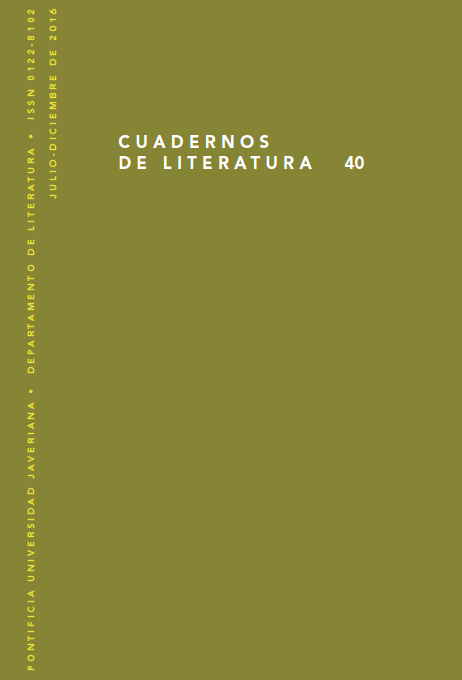Abstract
Este artículo analiza la figura del traductor como artesano en tres novelas argentinas de los años 1990 y 2000. Figura tradicional en la cultura latinoamericana, el traductor se caracteriza aquí por su precariedad laboral e institucional y su correlativo acercamiento material a la actividad de traducir. La representación ficcional del traductor como homo faber coincide por otra parte con el discurso de los traductores reales y las últimas orientaciones de la teoría sobre la traducción. Desde la ficción, el pensamiento reflexivo y la teoría, la traducción lee la literatura desde su especificidad material: es texto, lenguaje y estilo. Figura algo anacrónica, el traductor artesanal aparece como uno de los artífices de la autonomía crítica de la literatura.
Cuadernos de Literatura is registered under a Creative Commons Attribution 4.0 International Public License. Thus, this work may be reproduced, distributed, and publicly shared in digital format, as long as the names of the authors and Pontificia Universidad Javeriana are acknowledged. Others are allowed to quote, adapt, transform, auto-archive, republish, and create based on this material, for any purpose (even commercial ones), provided the authorship is duly acknowledged, a link to the original work is provided, and it is specified if changes have been made. Pontificia Universidad Javeriana does not hold the rights of published works and the authors are solely responsible for the contents of their works; they keep the moral, intellectual, privacy, and publicity rights.
Approving the intervention of the work (review, copy-editing, translation, layout) and the following outreach, are granted through an use license and not through an assignment of rights. This means the journal and Pontificia Universidad Javeriana cannot be held responsible for any ethical malpractice by the authors. As a consequence of the protection granted by the use license, the journal is not required to publish recantations or modify information already published, unless the errata stems from the editorial management process. Publishing contents in this journal does not generate royalties for contributors.


